Nguyen-Son Vo
Secrecy Performance of Small-Cell Networks with Transmitter Selection and Unreliable Backhaul under Spectrum Sharing Environment
Mar 07, 2021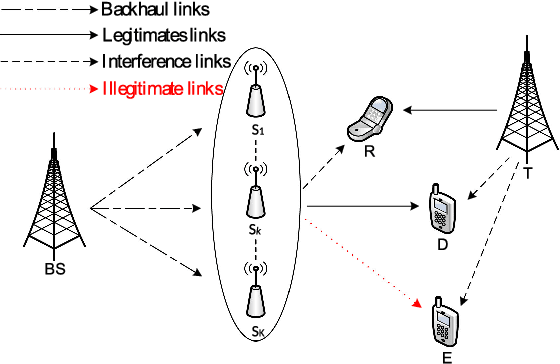
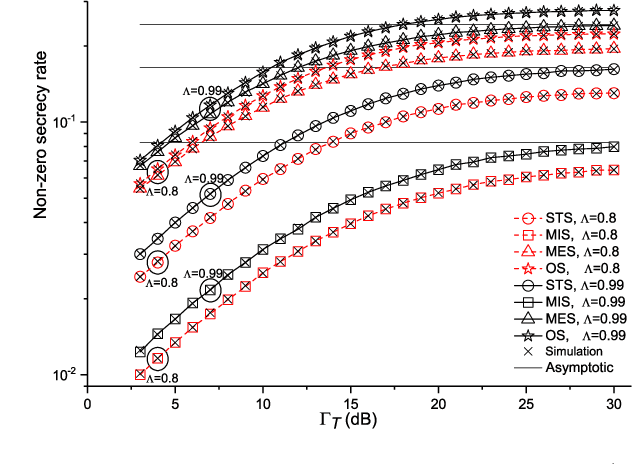
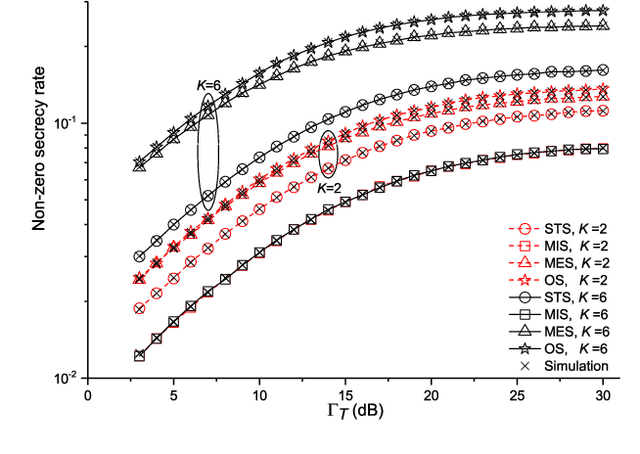
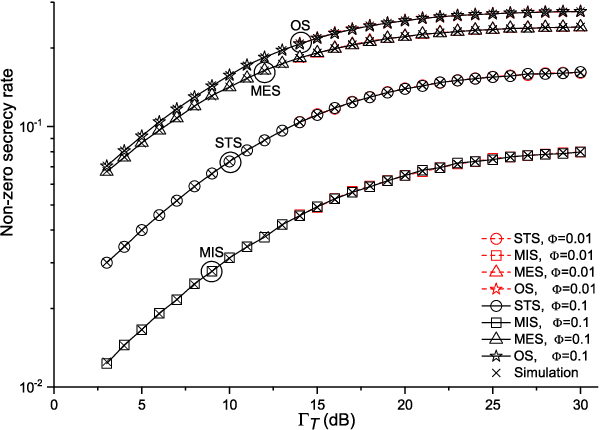
Abstract:We investigate the secrecy performance of an underlay small-cell cognitive radio network under unreliable backhaul connections. The small-cell network shares the same spectrum with the primary network, ensuring that a desired outage probability constraint is always met in the primary network. {To improve the security of the small-cell cognitive network, we propose three sub-optimal small-cell transmitter selection schemes,} namely sub-optimal transmitter selection, minimal interference selection, and minimal eavesdropping selection. Closed-form expressions of the non-zero secrecy rate, secrecy outage probability, and ergodic secrecy capacity are provided for the schemes along with asymptotic expressions. {We also propose an optimal selection scheme and compare performances with the sub-optimal selection schemes.} {Computable expressions for the non-zero secrecy rate and secrecy outage probability are presented for the optimal selection scheme.} Our results show that by increasing the primary transmitter's power and the number of small-cell transmitters, the system performance improves. The selection scheme, the backhaul reliability, and the primary user quality-of-service constraint also have a significant impact on secrecy performance.
Particle Swarm Optimization for Weighted Sum Rate Maximization in MIMO Broadcast Channels
Aug 04, 2015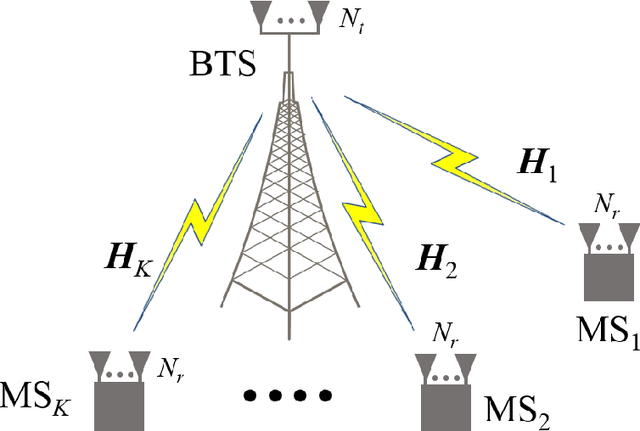
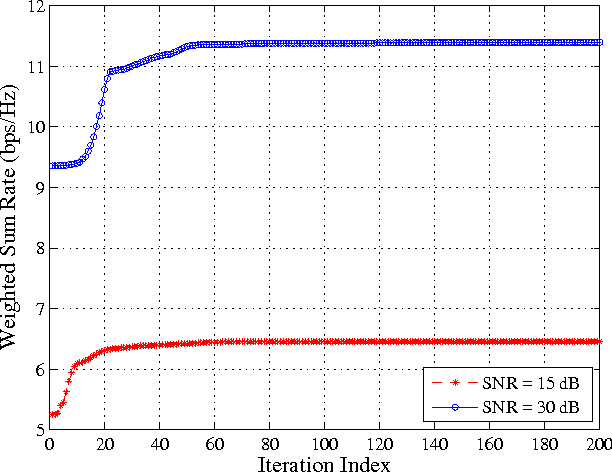
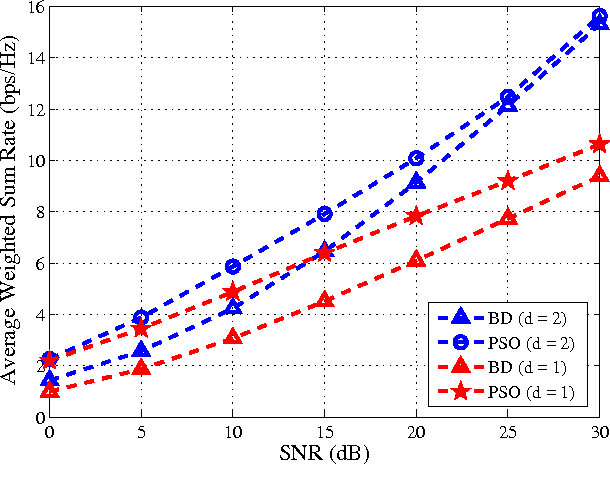
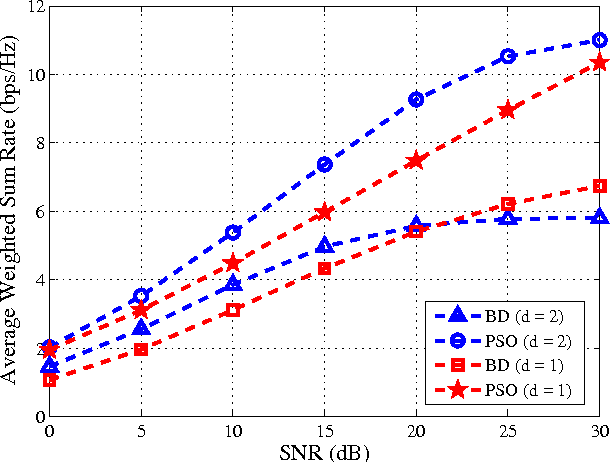
Abstract:In this paper, we investigate the downlink multiple-input-multipleoutput (MIMO) broadcast channels in which a base transceiver station (BTS) broadcasts multiple data streams to K MIMO mobile stations (MSs) simultaneously. In order to maximize the weighted sum-rate (WSR) of the system subject to the transmitted power constraint, the design problem is to find the pre-coding matrices at BTS and the decoding matrices at MSs. However, such a design problem is typically a nonlinear and nonconvex optimization and, thus, it is quite hard to obtain the analytical solutions. To tackle with the mathematical difficulties, we propose an efficient stochastic optimization algorithm to optimize the transceiver matrices. Specifically, we utilize the linear minimum mean square error (MMSE) Wiener filters at MSs. Then, we introduce the constrained particle swarm optimization (PSO) algorithm to jointly optimize the precoding and decoding matrices. Numerical experiments are exhibited to validate the effectiveness of the proposed algorithm in terms of convergence, computational complexity and total WSR.
 Add to Chrome
Add to Chrome Add to Firefox
Add to Firefox Add to Edge
Add to Edge